第14章
After that there was only a losing fight for the petitioners.They had touched a sore spot in James's history.But it was when they touched that sore spot again that they started the movement for a new version of the Bible.It was on the second day of the conference, January 16th, that Dr.Reynolds, president of Corpus Christi College, Oxford, who represented the moderate Puritan position, and, like many moderate men, was rather suspected by both extreme wings, instanced as one of the hardships of the Puritans that they were compelled to use the prayer-book of the time, and that it contained many mistranslations of Scripture, some of which he quoted.Now, it so happens that the errors to which he referred occur in the Bishops' and the Great Bible, which were the two authorized versions of the time, but are all corrected in the Genevan version.We do not know what point he was trying to make, whether he was urging that the Genevan version should supplant these others, or whether he was calling for a new translation.Indeed, we are not sure that he even mentioned the Genevan version.But James spoke up to say that he had never yet seen a Bible well translated into English; but the worst of all he thought the Genevan to be.He spoke as though he had just had a copy given him by an English lady, and had already noted what he called its errors.That was at the very least a royal evasion, for if there was any Book he did know it was the Genevan version.He had been fairly raised on it; he had lived in the country where it was commonly used.It had been preached at him many and many a time.Indeed, he had used it as the text for that paraphrase of the Revelation of which we spoke a moment ago.And he knew its notes--well he knew them-- knew that they were from republican Geneva, and that kingly pretensions had short shrift with them.James told the conference that these notes were "very partial, untrue, seditious, savoring too much of traitorous and dangerous conceits," supporting his opinion by two instances which seemed disrespectful to royalty.One of these instanceswas the note on Exodus 1:17, where the Egyptian midwives are said to have disobeyed the king in the matter of destroying the children.The note says: "Their disobedience to the king was lawful, though their dissembling was not." James quoted that, and said: "It is false; to disobey the king is not lawful, and traitorous conceits should not go forth among the people."Some of the High Church party objected that there were translations enough already; but it struck James's fancy to set them all aside by another version, which he at once said he would order.It was to be made by the most learned of both universities, then to be revised by the bishops and other Church dignitaries, then presented to the Privy Council, and finally to be passed upon by himself.There is the echo of some sharp Scotch experiences in his declaration that there were to be no marginal notes in that new version.
When they looked back on the conference, the Puritans felt that they had lost everything, and the High Church people that they had gained everything.One of the bishops, in a very servile way, and on his knee, gave thanks to God for having given the country such a king, whose like had never been seen since Christ was on earth.Certainly hard times were ahead for the Puritans.The King harried them according to his word.Within sixteen years some of them landed at Plymouth Rock, and things began to happen on this side.That settlement at Plymouth was the outcome of the threat the King had made at the Hampton Court conference.
But looking back one can see that the conference was worth while for the beginning of the movement for the new version.The King was true to his word in this line also, and before the year was out had appointed the fifty-four best Bible scholars of the realm to make the new version.They were to sit in six companies of nine each, two at Oxford, two at Cambridge, and two at Westminster.The names of only forty-seven of them have come down to us, and it is not known whether the other seven were ever appointed, or in what way their names have been lost.It must be said for the King that the only principle of selection was scholarship, and when those six groups of men met they were men of the very first rank, with no peers outside their own numbers--with one exception, and thatexception is of some passing interest.Hugh Broughton was probably the foremost Hebrew scholar of England, perhaps of the world, at the time, and apparently he was not appointed on the committee.Chiefly, it seems to have been because he was a man of ungovernable temper and utterly unfitted to work with others.Failure to appoint him, however, bit and rankled, and the only keen and sharp criticism that was passed on the version in its own day was by Hugh Broughton.He sent word to the King, after it was completed, that as for himself he would rather be rent to pieces by wild horses than have had any part in the urging of such a wretched version of the Bible on the poor people.That was so manifestly pique, however, that it is only to be regretted that the translation did not have the benefit of his great Hebrew knowledge.John Selden, at his prime in that day, voiced the feeling of most scholars of the times, that the new translation was the best in the world and best gave the sense of the original.